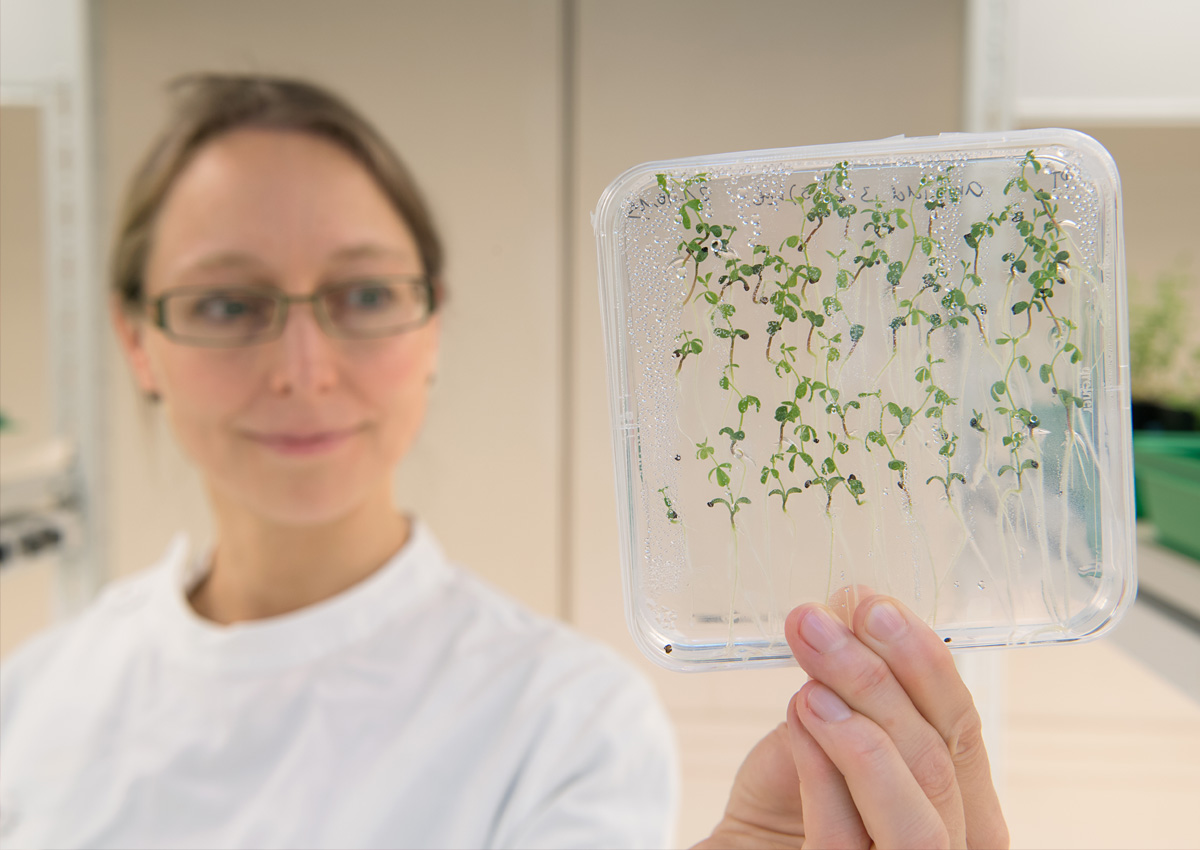
Research Team Finds Hormones Control Root Length
October 28, 2020| |
A research team at the Technical University of Munich (TUM) led by Professor Caroline Gutjahr has found new communication channels for hormones that influence root growth.
The protein SMAX1 slows down the production of ethylene, the plant hormone that triggers or accelerates the ripening of numerous fruits and vegetables. Ethylene can also trigger other processes in plants. When less of the gaseous hormone is produced in the plant, this stimulates the plant to grow long roots and short root hairs. It is also understood that the SMAX1 brake can be released if the Karrikin signaling pathway is activated, which brings another hormone into play. This turns on the production of ethylene, which means that the roots stay short and the root hairs grow longer.
According to Gutjahr, the mechanism has an enormous influence on the roots of the legume Lotus japonicus, the model plant for peas, beans, and lentils which was used in their study. However, the team observed that the mechanism has a weaker influence on the roots of the model plant Arabidopsis thaliana. The team is researching how carrikin and ethylene signaling pathways react to different environmental conditions. They want to find out how these two signal paths work together with the sensors with which a plant perceives various environmental influences.
For more details, read the article on the TUM website.
| |
You might also like:
- Study Finds Hormonal Interactions Regulate Growth of Plant Roots
- Scientists Investigate Plant Nodule and Lateral Roots, Gain Another Step to Developing Self-Fertilizing Crops
- Hormones for Root Growth Rates Revealed
Biotech Updates is a weekly newsletter of ISAAA, a not-for-profit organization. It is distributed for free to over 22,000 subscribers worldwide to inform them about the key developments in biosciences, especially in biotechnology. Your support will help us in our mission to feed the world with knowledge. You can help by donating as little as $10.
-
See more articles:
-
News from Around the World
- International Regulators, Tech Developers Share Experiences on Animal Biotech
- Ghana's Scientists to Seek Commercial Approval for GE Cowpea
- Thai Farmer Highlights Role of Biotech in Changing the Course of Agriculture
- UAE Passes Mandatory Biotech Labeling Law
- Scientists Find Gene for Slim Inflorescence Shape of Barley
- Research Team Finds Hormones Control Root Length
- Higher Income Nations See Harm in GM Food; Lower Income Countries Think they Help People
-
Research Highlights
- Scientists Uncover Molecular Mechanisms in Drought Sensitivity of Rice
-
Plant
- Comprehensive Advancement in Plant Virus Resistance Due to Genetic Engineering
- Genome Editing Offers Solutions to GHG Emission Problems
-
Health
- Initial Tests Show Arthritis Drug Does Not Treat COVID-19
- SARS-CoV-2 Uses Neuropilin-1 to Infect Human Cells
-
Read the latest: - Biotech Updates (December 17, 2025)
- Gene Editing Supplement (December 17, 2025)
- Gene Drive Supplement (February 22, 2023)
-
Subscribe to BU: - Share
- Tweet

